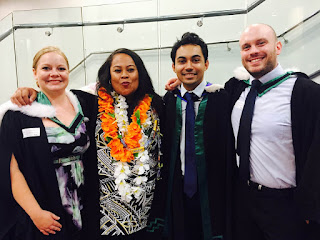Manaiakalani Practicum Partnership 2020
Manaiakalani Practicum Partnership 2020
We have been presented with an opportunity to partner with the University of Auckland to build partnerships with Manaiakalani in the ITE space, through a Practicum Pilot. The Head of Teacher Education is keen to see future Practicum Programmes include Manaiakalani’s digital teaching and learning processes and pedagogy. This pilot is a chance to share our expertise, knowledge and skills and influence future teachers coming into our profession and schools.
This partnership will involve:
- A two week placement from June 15th to June 26th, with one of your teachers, who is up to date with the Manaiakalani pedagogy and kaupapa in the outreach and local schools
- The selected Associate Teacher (AT) would have 4/5 Grad Dip student teachers in a ‘virtual classroom’ (these students are doing a one year programme, and have missed their first practicum block due to Covid-19).
Below is a brief outline of the proposed activities for the teachers and student teachers. The experience centres on teaching mathematics.
These are the practicum outcomes that the proposed activities contribute to:
- Building relationships with a class teacher and communicating effectively in writing with ākonga and colleagues (LO 1)
- Creating a positive online environment that responds to ākonga learning needs in mathematics (LO 2)
- Using digital technologies to deliver curriculum and respond to learners; collaborating with colleagues to design a digital; ex[erience (LO4)
This is a brief outline of the proposed task: Digital Learning and Teaching Task
Before the students work with your teachers they will have an introduction to Manaiakalani by AP Rebecca Jesson and the research team, so they will understand the pedagogical approach and background to your teachers’ work.
In groups of 4-5, STs will then meet virtually with a classroom teacher who will introduce them to their digital classroom space, show them how they organise and design learning for their class and talk about planning and assessing in a digital space. This will be an informal meeting where student teachers can ask questions as well as have an introduction to the ‘classroom’ where they will be working, Each teacher will have prepared a brief for the student teachers about a need their class has in mathematics.
.Designing a digital learning experience:
Using the brief they have been given, what they have learned from the introductory session about Manaiakalani’s signature pedagogy and access to further seminars through the Manaiakalani Innovative Teachers resource (https://mit.manaiakalani.org/) the student teachers will work in groups of 4-5 to design a digital learning experience that responds to the brief they received.
They will use Google Sites as the medium for the experience, and technical support is available from the university to help them with navigating Google Sites. The university’s professional supervisors will also be available to provide feedback on the student teachers’ ideas, and the supervisors can meet with the student teachers to talk through the task and get feedback during the process. During this time the student teachers will also be able to explore the students’ blogs in their classroom, and will be invited to comment on the students’ work.
Summary: The task will conclude with the student teachers meeting with their teacher as a group, to present the experience they have made and talk about what they have done and why. The AT will provide feedback for the STs on their work, and where possible their learning experience will be given to the children to try, so they can see how the children respond to it.
We hope you will see the value in this experience and give us permission to work with your teachers who are selected.
The commitment for your teachers is:
- Meeting with a group of student teachers via Goggle Meet showing them their online practice, chatting with them about their pedagogical approach and then giving them a ‘brief’ (examples will be provided) that describes a need that some students (or the class) has in mathematics.
- Letting the student teachers read their class’ blogs and comment on them
- Meeting with the students again at the end of the fortnight and giving them verbal feedback on what they have designed in response to the ‘brief’. If possible they might organise for the students in their class to try the digital experience designed by the student teachers but this is not compulsory.



Comments
Post a Comment